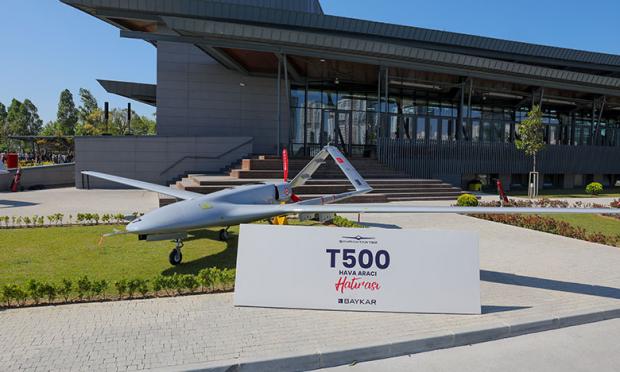In Ukraine, the construction of a factory for the production of Turkish drones, which had proved vital to Kiev's fight against Russian aggression, began, which the Russians quickly found a way to counter, proving the ephemeral power of Turkish constructions.
It is believed that the Kremlin may possibly consider the new factory a legitimate target, targeting it with precision weapons, missiles and suicide drones.
The country's Strategic Industries Minister Oleksandr Kamyshyn told Ukrainian television on Monday that work had begun on the Turkish-designed Bayraktar TB2 production plant, although he did not specify where.
"The plant has started to be built in practice and not just under a memorandum," he said. Construction was agreed "several years ago" but had been delayed by "closures and scandals," he added, according to Ukrainian Channel 24.
In January 2023, Ukrainian Ambassador to Turkey Vasily Bodnar had said the plant should start operating within the next two years.
According to reports, there were plans to start work on the plant in October 2022, but the project's momentum has increased following the agreement signed between Ankara and Kiev in February this year for cooperation in the high-tech, aviation and space sectors.
Channel 24 reported that the facility will produce drones which "will have Ukrainian components".
The Bayraktar TB2 is a medium-altitude, high-endurance (MALE) unmanned aerial vehicle (UAV) manufactured by the Turkish company Baykar, primarily for the Turkish armed forces. It is about the size of a small plane, has cameras and can be armed with laser-guided bombs.
Capable of performing intelligence, reconnaissance and armament missions, the drones can fly at speeds of up to 138 miles per hour and carry a payload of up to 330 kilograms.
The drone has been used to inflict damage on Russian targets and was used in the attack that sank the Russian warship Moskva in the Black Sea in April 2022, however quickly the Russians began shooting down Turkish UAVs en masse.
Iran has supplied Moscow with Shahed-129 unmanned aerial vehicles (UAVs), also known as "suicide drones", which have been used to scan Ukrainian airspace and hit civilian and infrastructure targets.
Iranian drones are said to have a long range and high payload, but the Bayraktar drone is faster and can travel longer - up to 27 hours, three hours longer, than the Shahed-129.
Moscow has blamed Kiev for a series of recent drone attacks, including on the Kremlin in May and on cities near Russia's border with Ukraine.
Later that month, the Kremlin said it would take the "strictest possible measures" after it said eight drones targeted Moscow. Allegations of Ukrainian drones being used on targets inside Russia are also frequently made by pro-war military bloggers.
Ukrainian officials recently shared a video showing a stored "swarm of drones" with Ukrainian Minister Mikhail Fedorov describing how drones provide a "competitive advantage" over Russian forces.



